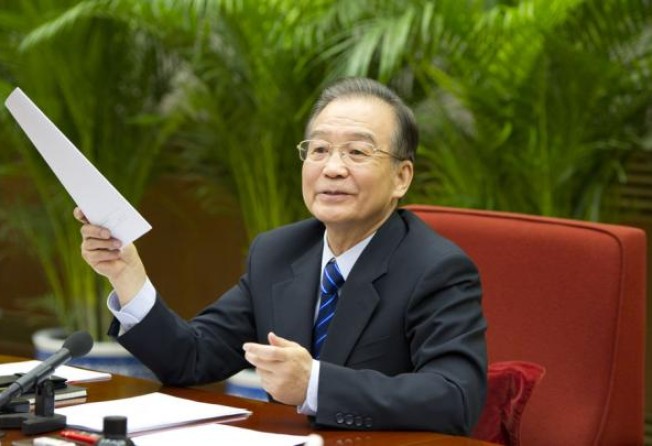Clean air to breathe is a human right, too
As anger grows among smog-bound residents, the leadership seems to lack the political will to make tackling rampant pollution a top priority

After days of being shrouded in heavy smog, Beijing residents woke up on Friday to spectacular blue skies.
But they had the heavenly Lord rather than "Grandpa Wen" (the nickname of Premier Wen Jiabao ) to thank for the respite after strong winds overnight blew away the pollutants.
A cynical text message conveyed gratitude to the 20 million Beijing residents for sucking up the hazardous brown and grey soot day and night and allowing the sun to come shining through.
What an "accomplishment" that is, given the fact that Beijing experienced the worst and longest-lasting air pollution in recent history during last month.
A total of 26 out of the 31 days were heavily polluted, with an air quality index reading that meant people were warned to stay indoors. The other five days of clear skies came after strong winds.
But Beijing residents were not the only ones who suffered.
Official reports show that at one point, thick smog enveloped 1.4 million square kilometres in the northern and eastern areas of the mainland, with up to 800 million people forced to inhale the filthy air.
Flights were cancelled or delayed, highways were closed and hospitals were crowded with patients seeking respiratory treatment.
Zhong Nanshan, a leading respiratory disease specialist, warns that air pollution is even more frightening than the severe acute respiratory syndrome epidemic because no-one can escape it. In 2003, Sars killed 299 in Hong Kong and hundreds more in over 20 countries.
With the unprecedented scale of air pollution and rising anger among residents, one would assume there is no better time for the country's leaders - who like to preach the policy of putting the people first - to go on television and apologise for the environmental disaster.
And they should promise to take serious legislative measures to clean up the air, even though everyone knows the legislation may take many years to have any noticeable effect.
Unfortunately, the official response has been very lame - with an absence of any apologies - even though popular anger has prompted the state media to report more openly on the air quality problems.
To be fair, officials in the affected areas have vowed to improve the air quality and take immediate measures, including shutting down high-polluting factories and banning a certain number of vehicles from the roads.
But there is a lack of political will at every level of the government to make tackling air quality a top priority.
Outgoing Premier Wen, who is known for rushing to the scenes of natural disasters to comfort the victims, addressed the issue only in passing when soliciting views on his last government work report, to be delivered in March.
His successor, Li Keqiang, briefly talked about the difficulties of cleaning up the air.
That is too bad.
Last month's record pollution levels should sound a serious warning to the leadership, which has overseen more than 30 years of pursuing economic growth above all else. This policy has made the economy the second largest in the world, but at a great cost to the environment.
More than 70 per cent of the mainland's lakes and rivers, and over 90 per cent of the groundwater in urban areas is seriously polluted, even unfit for animals to drink.
Nearly 300 million mainlanders, most in rural areas, do not have access to clean water.
Leaders have taken pride in saying that China has made great progress on the issue of human rights by lifting hundreds of millions of people out of poverty.
To enable them to breathe clean air and drink clean water are other human rights the central government must work hard to guarantee.